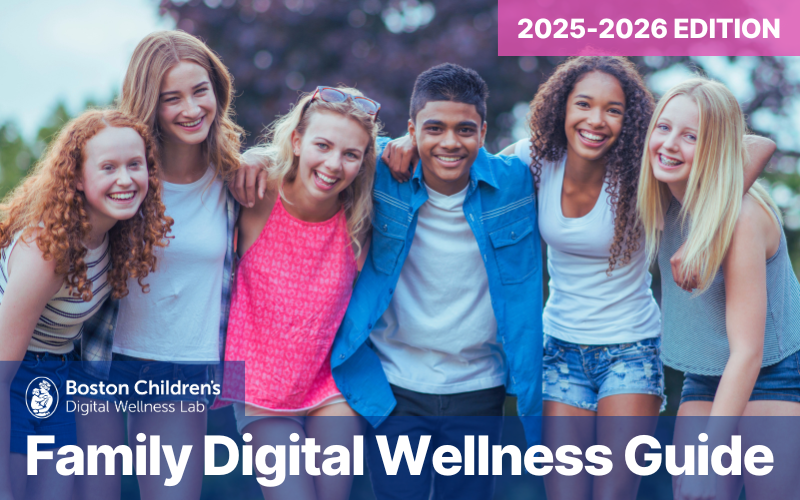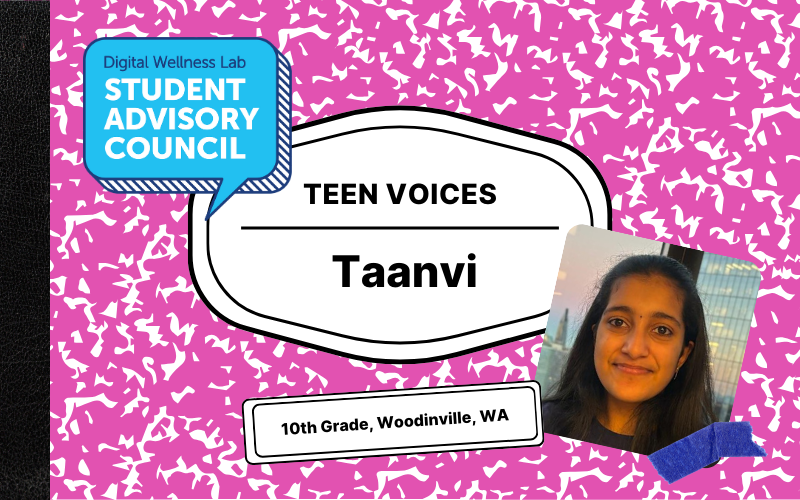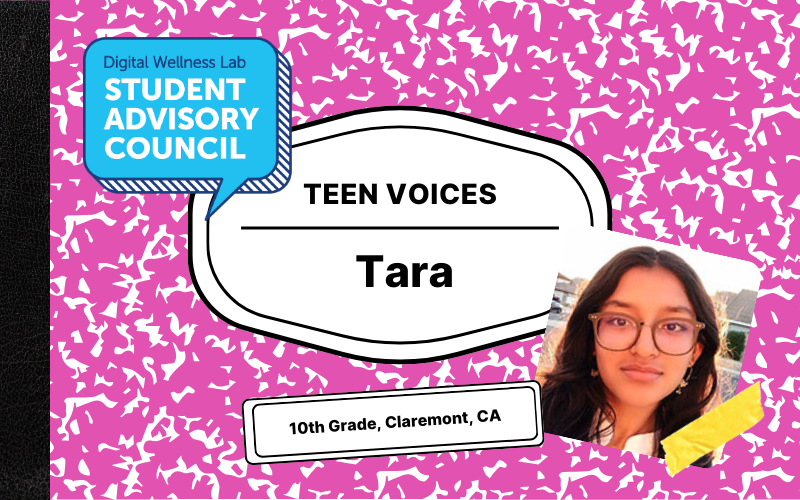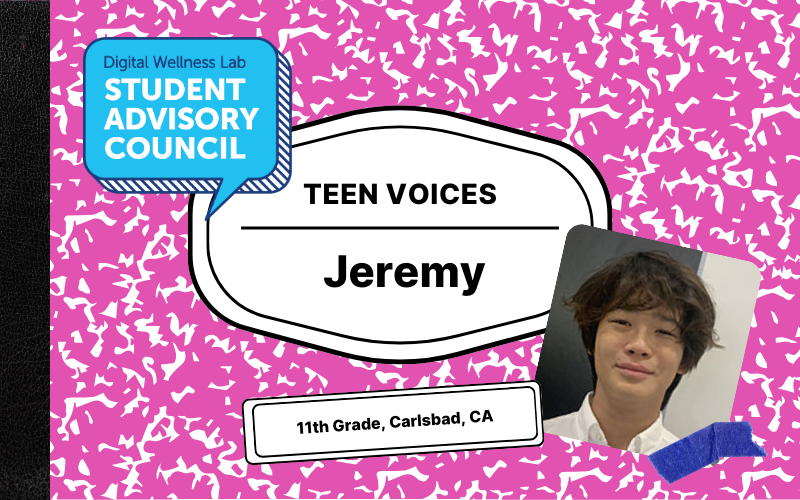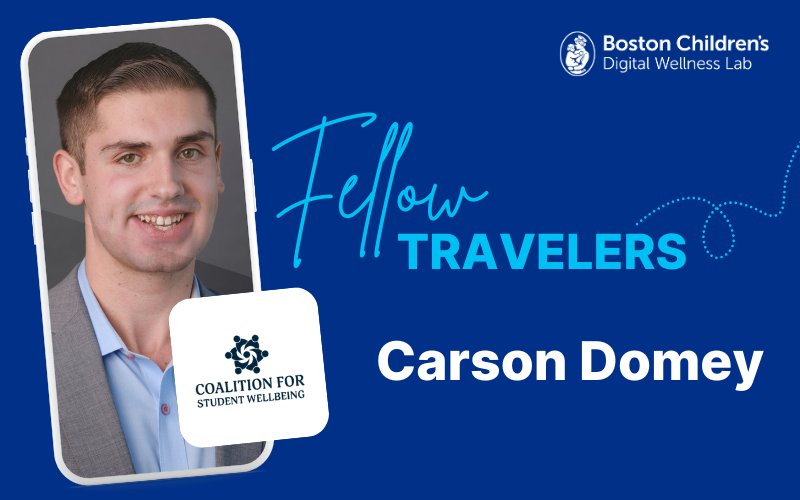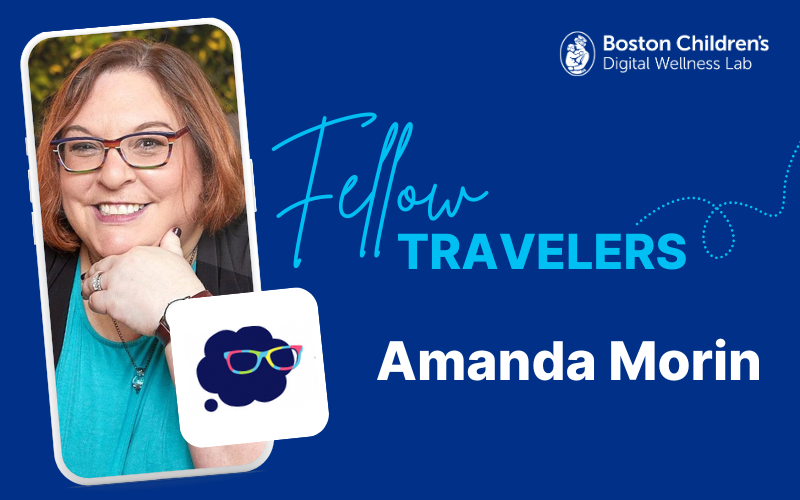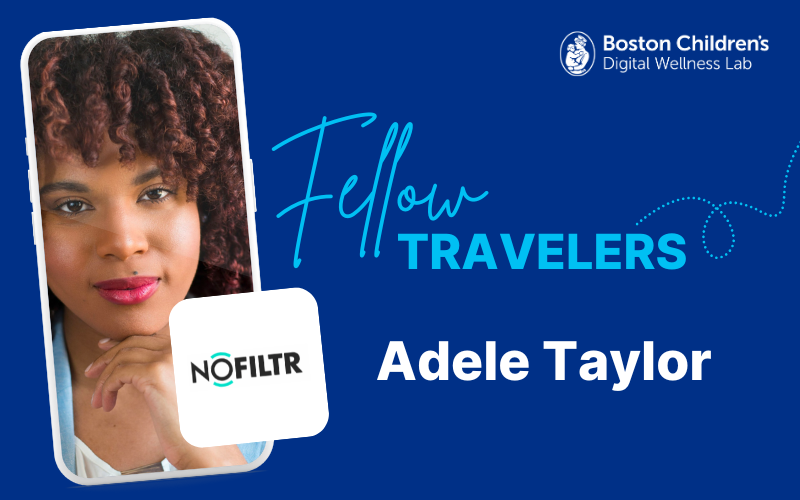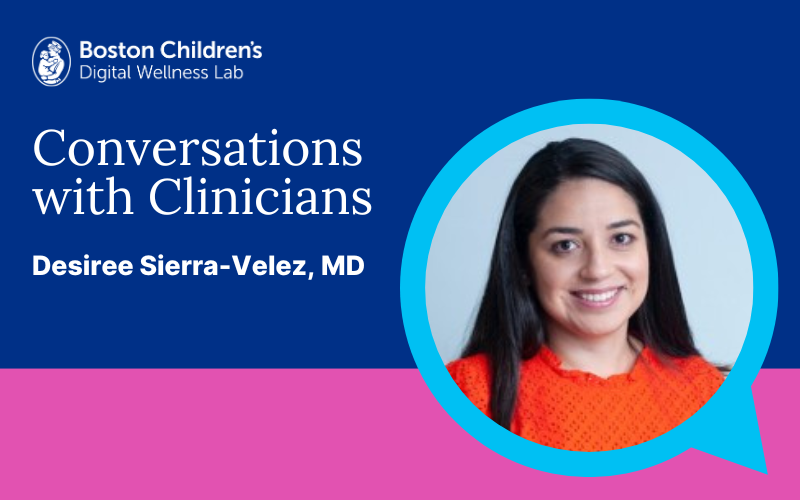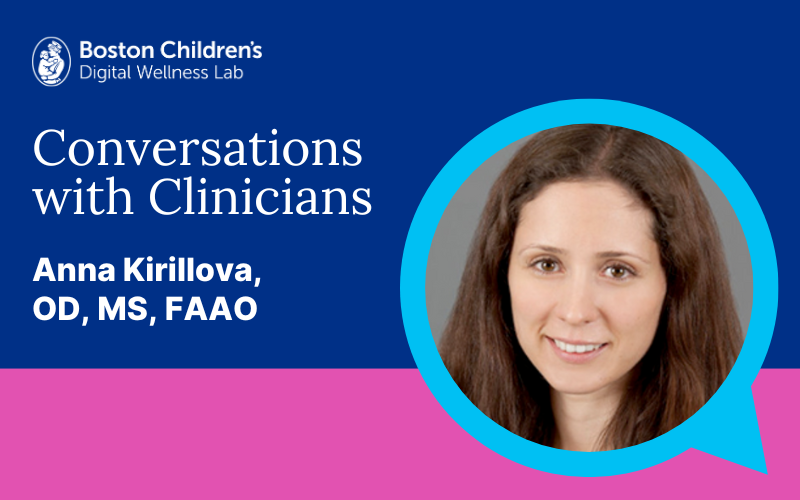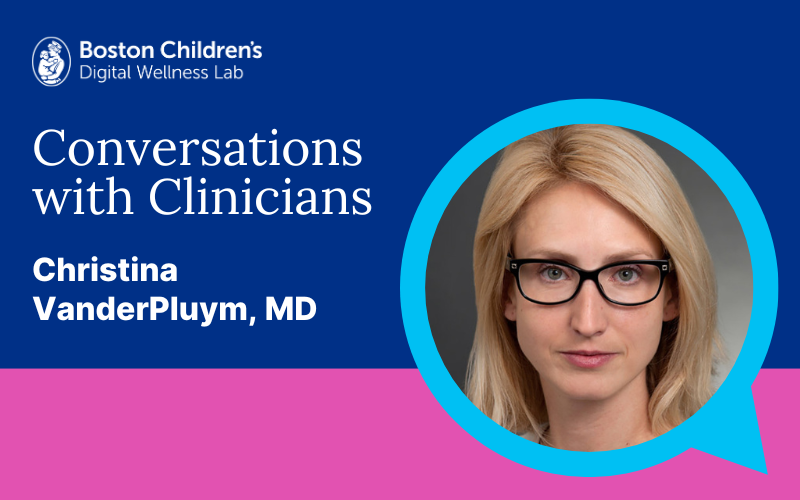This quarter at the Digital Wellness Lab, we advanced our mission to shape a healthier digital ecosystem through new research, industry engagement, and community outreach. HIghlights include a new research brief on LGBTQ+ youth in online spaces, Dr. Zhiying (Zoey) Yue’s award recognition for her work on adolescent gaming behaviors, and our numerous thought-provoking discussions to help youth, families, and clinicians navigate the digital landscape. The highlights from Q1 2025 showcase our ongoing commitment to conducting innovative, rigorous research and providing the resources and insights necessary for promoting healthy digital engagement.
Read on for our latest research, Lab updates, and helpful resources.
Q1 Highlights
- Released our 2024 Impact Report in which we shared key highlights from our work last year, including new insights on fostering connection in online spaces, the role of media literacy, and strategies for creating a safer digital environment.
- Published our latest research brief, The Online Experiences of LGBTQ+ Youth, and released a preprint, Understanding Children’s Avatar Making in Social Online Games, which explores how young people use in-game characters to shape and explore their identities
- Dr. David Bickham, Research Director, unveiled the beta Digital Media Use Screener at the Society for Adolescent Health & Medicine’s 2025 Annual Meeting to help clinicians assess digital media’s impact on adolescents.
- Co-hosted Collaborative Guardians of Digital Wellness with Inspired Internet Pledge advisor Scroll by Choice facilitating an in-depth conversation about the role solutions providers play in building a safer internet.
- Engaged directly with students, issuing a challenge to teens regarding healthier social media use at the Aspen Challenge in Boston and hosting two professional panels featuring technology,, media, and healthcare leaders for our Student Advisory Council members to explore higher education and career interests.
- Celebrated Dr. Zhiying (Zoey) Yue, Scientist and Instructor at Harvard Medical School, who was awarded the 2025 Charles E. Irwin, Jr. New Investigator Award from the Society for Adolescent Health and Medicine (SAHM) for her research on adolescent gaming behaviors and mental health.
- Furthering the Lab’s thought leadership and collaborative engagement, members of our team participated in major discussions, including the Verizon Digital Wellness Summit, CommonSense Media Summit, Born This Way Foundation’s “Without it, I Wouldn’t Be Here Today” convening, and the University of Toledo’s Perspectives Series on youth mental health.
- Dr. Michael Rich keynoted the Children’s Foundation of Mississippi’s 2025 Summit on the evolving challenges and opportunities facing children in today’s digitally saturated world, and joined the Joan Ganz Cooney Center at Sesame Workshop for a fireside chat on parenting in a digital world, featuring his book, The Mediatrician’s Guide: A Joyful Approach to Raising Healthy, Smart, Kind Kids in a Screen-Saturated World.
The Lab in the News
How parents can make sure their children are making safe screen time choices
Dr. Rich recently sat down with CBS WBZ-TV’s political analyst Jon Keller to discuss how parents can ensure their children are using screens in safe and healthy ways. Dr. Rich encourages caregivers to focus on helping kids build the skills to navigate the digital world with confidence and care.
A TikTok Habit Is Hard to Break
In this New York Times article, Dr. Michael Tsappis, Co-Founder and Co-Director of the Clinic for Interactive Media and Internet Disorders weighed in on the risk factors for overindulgence and signs of dependence in the use of social media.
Schools, state legislature unsubscribing to student cell phone use
Dr. David Bickham spoke with Nebraska Public Media to discuss the increasing prevalence of policies to limit student cell phone use. Dr. Bickham highlighted that, as more schools explore cell phone restrictions, teaching mindful use of technology may be more impactful long term for young people’s wellbeing than restrictions alone.
A Mediatrician’s Guide – how to live a healthy life with screens
Dr. Rich joined The Boston Globe’s podcast to challenge the way we think about screen time, offering a science-backed approach that leverages kids’ developmental trajectories and needs. Host Jazmin Aguilera dives into what the Lab is learning, how research shapes our guidance for parents, and practical strategies to help families develop healthy screen habits.
With Clicks Into Oblivion, Frying Your Brain Is Fun
The New York Times asked Lab advisor Dr. Meredith Gansner for information on how over-stimulating websites can affect our brains. Dr. Gansner shares information about mental fatigue, including how online engagement can cause it and signs you may be experiencing it.
The Social Media World of Our Children
Dr. Michael Rich spoke with Dr. Susan Buttross of Southern Remedy Relatively Speaking on how to navigate the positive and negative aspects of social media, and the impacts of online engagement on children’s and teens’ mental health.
Is it an addiction? Red Flags to know if you’re on your phone too much
On Boston 25 News, Dr. Tsappis cautioned against using the word “addiction” too easily with technology and noted that turning away from the phone is less about the device itself and more about embracing life and surroundings.
The Amount Of Time Kids Spend On Smartphones During The School Day
In a conversation with HuffPost, Kaitlin Tiches emphasized the importance of including teachers and students in policy discussions about classroom smartphone use, noting that even the most well-developed policies may require a period of refinement to ensure they work for teachers and students.
How to spot doomscrolling and guide teens toward balance
The urge to doomscroll stems from our fight-or-flight response—a way to feel safe by staying informed. Experts, including Dr. Michael Rich, spoke with Verizon to share tips on how to help teens build healthier habits and information about the importance of self-regulation in media consumption.
5 Tips for Raising Healthier, Screen-Balanced Kids According to the ‘Media-trician’
Struggling with screen time battles at home? You’re not alone. Dr. Rich, the “Mediatrician,” offered the Boston Globe practical and research-backed strategies for helping kids develop healthier relationships with technology. Dr. Rich emphasized that it’s not just about limiting screen time—it’s about fostering mindful and balanced use of media.
Recommended Reads From Our Fellow Travelers
The Kids are Online: Research-Driven Insights on Child Safety Policy Center for Democracy and Technology
Cell Phones and Social Media In Schools Toolkit Sociedad Latina
Media Literacy Handbook from Google’s Be Internet Awesome NAMLE
Selfsea mental health app for young people Peer Health Exchange
A Safer Internet Requires You: 5 Challenges for All of Us Parent ProTech
Tech/Life Balance: Helping Families Thrive in a Digital World (Social Emotional Health Family Guide) California Partners Project
Stop Panicking Over Teens and Social Media Wall Street Journal
The Gender Gap in Teen Experiences Pew Research Center
Healthy Video Viewing: A Guide for Parents of Teens American Psychological Association
Call Me Maybe Funding Challenge Young Futures
Raising Confident Girls in a Digital World: How Parents Can Guide Healthy Social Media Habits FOSI
“Without It, I Wouldn’t Be Here Today”: LGBTQ+ Young People’s Experiences in Online Spaces Born This Way Foundation
Resources for Families
Teen Voices
Teen Voices: Taanvi
Taanvi, a member of the Digital Wellness Lab’s 2024-2025 Student Advisory Council, is passionate about using her voice to transform isolation into connection, and to build online communities that support mental health.
Teen Voices: Tara
Tara, a member of the Digital Wellness Lab’s 2024-2025 Student Advisory Council, would like to see social media and technology designed with the end user in mind to better protect the youth of today and tomorrow.
Teen Voices: Jeremy
Jeremy, a member of the Digital Wellness Lab’s 2024-2025 Student Advisory Council, shares his perspective on the opportunities with technology, and developing a healthy relationship with the digital world.
Fellow Travelers
Fellow Travelers: Carson Domey
Carson Domey, executive director at the Coalition for Student Wellbeing, speaks about the value of incorporating mental health education and digital literacy skills into K-12 education curricula.
Fellow Travelers: Amanda Morin
Amanda Morin, author and neurodiversity consultant, provides guidance on how to band together as a digital village and make online spaces safe and supportive for everyone.
Fellow Travelers: Adele Taylor
Adele Taylor, Senior Manager, Youth Programs and Partnerships at NoFiltr, urges tech platforms to take a safety by design approach to building products.
Conversations With Clinicians
Conversations with Clinicians: Desiree Sierra-Velez, MD
Desiree Sierra-Velez, pediatric gastroenterologist at Boston Children’s Hospital, explains how technology and tools can help empower teens to take care of their health, an important step towards autonomy over their healthcare decision-making.
Conversations with Clinicians: Anna Kirillova, OD, MS, FAAO
Anna Kirillova, OD, MS, FAAO talks about the importance of teaching kids that the internet and media are tools for the world, but are not the world itself.
Conversations with Clinicians: Christina VanderPluym, MD
Christina VanderPluym, MD, a cardiologist and mom, faces the same tech challenges as other parents and caregivers. She shares her thoughts on the importance of helping kids develop the skills they need to navigate today’s digital world.
Want More?
To catch up on what else we’ve been up to at the Digital Wellness Lab, check out our latest blog posts and press; learn more about our work and how we create impact here; and if you haven’t already, be sure to sign up for our monthly newsletter. Interested in learning more about joining the Inspired Internet Pledge to be a part of the collaborative work to build a healthier internet? Email us at dwl@childrens.harvard.edu to connect!







